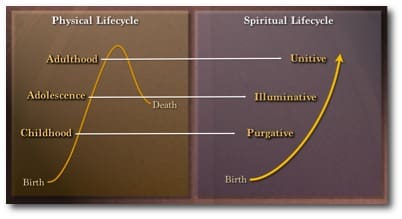Dear Father John, My reactions to things seem out of control. For example, when I am cut off in traffic by another driver, I often get “road rage.” And, I get very sad when people reject my good intentions. There doesn’t seem to be any basis for it, nothing in my childhood or upbringing or any physical reason. Is there any way to really get a handle on these things and bring these emotions under control, without stifling or “stuffing” my feelings?
THE PAINFUL AND complex disconnect between where our emotions often do pull us and where they ought to pull us is an undeniable aspect of life in a fallen world. We are made for God and for authentic good, and that is our deepest yearning, but our wounded human nature is easily distracted and deceived, and it often leads us astray. St. Paul diagnosed this condition simply by reflecting on his own experience of internal division between our fallen nature and our redeemed nature:
For I know that good does not dwell in me, that is, in my flesh. The willing is ready at hand, but doing the good is not. For I do not do the good I want, but I do the evil I do not want… For I take delight in the law of God, in my inner self, but I see in my members another principle at war with the law of my mind (Romans 7:18—19, 22—23).
This is the human soul, an arena so often full of strife. This is the soul with which Jesus commands us to love God.
The Education of Emotions
 The bottom line is simply that our capacity for these rich human experiences needs to be educated–and it can be educated! Under the Holy Spirit’s guidance, we can bring our emotional potential into deeper and deeper harmony with what is true, good, and beautiful, so that our feeling function better fulfills its real purpose: energizing us in the pursuit of God’s kingdom. This formation passes through three basic phases, which correspond to the three traditional stages of the spiritual life: the purgative way, the illuminative way, and the unitive way.
The bottom line is simply that our capacity for these rich human experiences needs to be educated–and it can be educated! Under the Holy Spirit’s guidance, we can bring our emotional potential into deeper and deeper harmony with what is true, good, and beautiful, so that our feeling function better fulfills its real purpose: energizing us in the pursuit of God’s kingdom. This formation passes through three basic phases, which correspond to the three traditional stages of the spiritual life: the purgative way, the illuminative way, and the unitive way.
Purifying Our Emotions
In the first stage of spiritual growth, the purgative (or purifying) stage, our emotions need discipline. Like spoiled children who throw violent tantrums whenever their slightest whim is denied, undisciplined emotions tyrannically and violently seek to be indulged. But this is unhealthy. If we let our volatile emotional states and reactions dictate our behavior, we will stay spiritual infants forever.
A young wild horse has magnificent strength, great potential. But maximizing that potential requires training the horse to respond to the mind and will of its rider. The horse needs to learn how to carry a saddle, follow the reins, and recognize its rider’s signals. In this way, the horse’s raw strength can be harnessed for productive, fulfilling work.
Our emotions are kind of like that. They are a magnificent potential source of energy that can help our spiritual faculties flourish and lead us toward maturity and fulfillment. But they must learn docility to those higher faculties. And the first step in that process is holding them back from overindulgence by disciplining them. We simply can’t let them run our lives if we truly want to live life to the full.
Editor’s Note: In part II, we will continue our discussion on forming our emotions with a look at our emotions in the illuminative way and the unitive way.
Art: File graphic.

